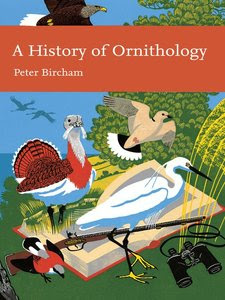If, as mentioned in an earlier review, there is no such thing as 'art,' only artists, we might similarly add that there is no such thing as 'ornithology', only ornithologists. Specifically, Bircham's account tells us only that the history of British ornithology has been composed by individuals (almost exclusively men) who are best understood within the confines of their era, their educational and field training, and the mode of biological and ecological science that prevailed in their lifetimes.
Much of this recounted history is as uninspiring as many non-ornithologists might assume. Too often it reads as a catalog of amateurs and academics. Debates surrounding Linnean nomenclature and listing techniques (among other issues) are treated primarily as esoteric territory battles with little exploration of how ornithology and ornithologists impacted the broader biological sciences. By keeping the focus narrowly upon ornithology, but not pursuing any specific aspect in too much depth, topics of certain interest - the first British bird book written, studies of migration, species classification - are sometimes subsumed to the inclusion of biographical synopsis of ornithologists' lives. At its weaker moments this history reads more like a chronicle. Relatively unexplored is the question of why a history of British ornithology is necessary and what it teaches us not only about the field and the biological sciences, but about our evolving relationship to birds and the environment at-large.
There are some great mysteries and wonders of the past, which Bircham touches upon; these convey a sense of how ornithological understanding has changed. We do well to remember that many of our scientific matters of fact are mediated and authorized by technological developments. How could proto-ornithologists have known where swallows migrated before the exploration of interior Africa? Without radio tracking how could avian movements be traced from county to county? Let alone country to country? Physical and social technologies (e.g. the development of laboratory sciences) were never a given as ornithology moved beyond bird-watching and cataloging to stand as a robust field of inquiry. Early chapters of Bircham's account transport the reader to a time when even the term scientist was unheard. These provide interesting moments of reflection. Missing is a more explicit engagement in these moments, and more clear discussion of why they raise questions which are pertinent for the modern reader.
